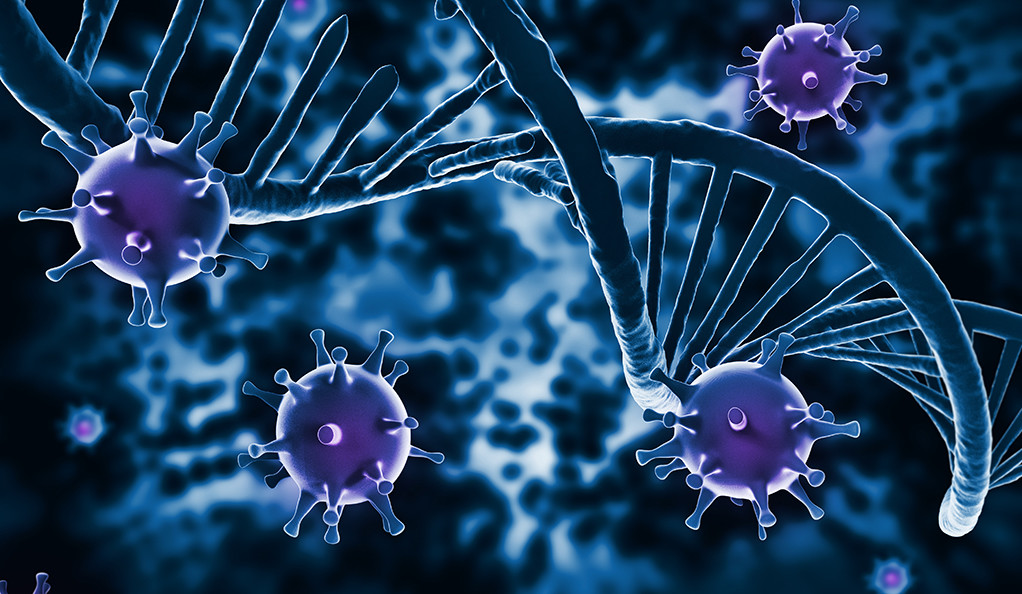Source: Yale University Jan 24, 2019 6 years, 3 months, 2 days, 19 hours, 7 minutes ago
Much of the research on HIV has focused on preventing infection but little is understood about how the body keeps the virus in check post-infection. A new study by Yale investigators reveals the role of a protein that serves to block HIV gene expression once it has entered human cells.
The research team, led by Manabu Taura, a postdoctoral fellow in the laboratory of immunobiologist and Akiko Iwasak, studied T cell lines infected with latent HIV. They observed the effect of modifying genes to either overexpress , that is, make multiple copies of , or knock out the protein Apobec3A (A3A) which is known to suppress HIV during early infection phase. The researchers found that A3A blocks HIV reactivation by binding to a region of HIV DNA that would otherwise promote the virus, and instead, recruiting a complex of enzymes that inhibit HIV. The team then confirmed those findings through experiments on HIV-infected human T cells.
Human immunodeficiency virus 1
(HIV-1) infection causes a life-long disease, due to the ability of the virus to integrate into the host genome and establish latent infection. While research has revealed a number of host restriction factors that block primary infection, much less is understood with regard to the host factors that promote or block reactivation of the integrated proviral HIV-1. In this study, it was showed that a member of the Apobec3A (apolipoprotein B MRNA editing enzyme catalytic subunit 3A) family, A3A, suppresses HIV-1 reactivation by recruiting chromatin-modifying enzymes to impose repressive marks around the long terminal repeat promoter region. Identification of host factors that control HIV-1 latency may provide clues for therapeutic interventions needed to remove the viral reservoir from the infected individual.
HIV-1 integrates into the genome of target cells and establishes latency indefinitely. Understanding the molecular mechanism of HIV-1 latency maintenance is needed for therapeutic strategies to combat existing infection. In this study, we found an unexpected role for Apobec3A (apolipoprotein B MRNA editing enzyme catalytic subunit 3A, abbreviated “A3A”) in maintaining the latency state within HIV-1–infected cells. Overexpression of A3A in latently infected cell lines led to lower reactivation, while knockdown or knockout of A3A led to increased spontaneous and inducible HIV-1 reactivation. A3A maintains HIV-1 latency by associating with proviral DNA at the 5′ long terminal repeat region, recruiting KAP1 and HP1, and imposing repressive histone marks.It was showed that knockdown of A3A in latently infected human primary CD4 T cells enhanced HIV-1 reactivation. Collectively, evidence can be provided to show a mechanism by which A3A reinforces HIV-1 latency in infected CD4 T cells.
While more research is needed, note the scientists, the study suggests that A3A is a potential focus for therapies designed to suppress HIV. “It may be a good target for blocking HIV that’s integrated in cells,” said Iwasaki I an interview with
Thailand Medical News. “If we can find a way to express A3A in latently infected cells, we can block the reactivation of HIV. That’s a good thing because if infected cells in HIV patients can’t express viral genes, there’s no disease.”
/>
Reference: Manabu Taura el al., "Apobec3A maintains HIV-1 latency through recruitment of epigenetic silencing machinery to the long term repeat," PNAS (2019). www.pnas.org/cgi/doi/10.1073/pnas.1819386116
